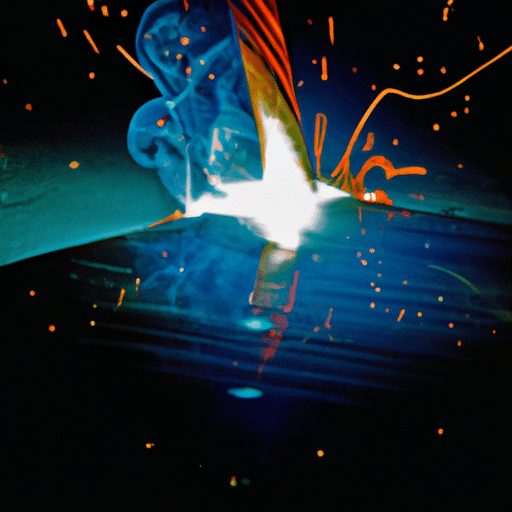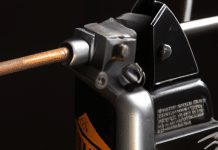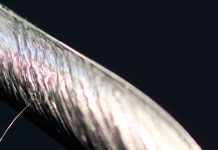Finding the right welding wire for a project can be quite a daunting task. With so many options available, it’s essential to understand the various factors that influence your decision. From understanding the project requirements to considering the material being welded, we’ll guide you through the process of selecting the perfect welding wire that ensures strong and durable welds. So, let’s dive into the world of welding wires and uncover the key considerations that will help you make an informed choice.
Review contents
Factors to Consider
When selecting the right welding wire for a project, there are several important factors to consider. Each factor plays a crucial role in determining the most suitable welding wire for the job. By carefully considering these factors, you can ensure that your welding project is successful and achieves the desired results.
Metal Type
The type of metal being welded is a key factor in choosing the right welding wire. Different metals have varying physical properties, such as melting points and tensile strengths, which require specific welding techniques and wire compositions. Some common metals used in welding projects include carbon steel, stainless steel, aluminum, and copper. Understanding the characteristics of the metal being welded will help you select the appropriate welding wire that will provide optimal results.
Welding Process
There are various welding processes available, and each requires a specific type of welding wire. The most commonly used processes include MIG (Metal Inert Gas), TIG (Tungsten Inert Gas), flux-cored, and stick welding. MIG welding utilizes a continuous feed of wire, while TIG welding requires a separate filler wire. Flux-cored welding uses a tubular wire with a flux core, and stick welding uses a coated electrode. Considering the welding process is crucial in selecting the correct welding wire that is compatible with the chosen method.
Base Material Thickness
The thickness of the base material is an essential factor in determining the appropriate welding wire. Different wire diameters are designed to handle specific base material thicknesses effectively. Thin base materials require a smaller wire diameter, while thicker ones necessitate a larger diameter to ensure proper weld penetration and strength. Selecting the correct wire diameter for the base material thickness is crucial to avoiding undesirable outcomes like under or over-penetration that can compromise the integrity of the weld.
Joint Design
The design of the joint being welded also influences the choice of welding wire. Different joint types, such as butt joints, tee joints, corner joints, and overlap joints, require specific welding techniques and wire types. The joint design affects factors like the amount of material being welded, the accessibility of the weld area, and the strength requirements. Considering the joint design helps determine the appropriate welding wire to achieve a strong and durable weld.
Strength Requirements
The strength requirements of the welded joint are another crucial factor to consider when selecting the right welding wire. Welding wires are classified based on their tensile strength, and it is essential to choose a wire that matches or exceeds the strength requirements of the project. High-strength wires are ideal for applications that demand exceptional durability and load-bearing capacities, while low-strength wires are suitable for less demanding projects. Selecting the correct strength category ensures the weld can withstand anticipated stresses and forces without failure.
Corrosion Resistance
In some welding projects, the welded joint may be exposed to corrosive elements. It is essential to consider the corrosion resistance properties of the welding wire to ensure the longevity of the weld. Rust-resistant and corrosion-resistant wires are designed to withstand atmospheric exposure and chemical exposure, respectively. By selecting a welding wire with adequate corrosion resistance, you can prevent premature deterioration of the weld, ensuring its durability even in harsh environments.
Operating Conditions
The operating conditions in which the weld will be subjected to also play a significant role in selecting the appropriate welding wire. Factors such as indoor or outdoor application, temperature extremes, and exposure to elements should be taken into account. For example, welding in high-temperature environments may require a wire that can withstand elevated heat levels without compromising its integrity. Considering the operating conditions ensures that the weld remains strong and reliable under the specific circumstances it will encounter.
Cost
The cost aspect is an important consideration for many welding projects. While it should not be the sole determining factor, it is crucial to consider the budget constraints and long-term savings associated with different welding wires. Some high-performance wires may come at a higher initial cost but can provide long-term savings due to their superior quality and longevity. Balancing the cost factor with the desired outcomes is essential to make an informed decision.
Availability
The availability of the welding wire is another practical consideration to keep in mind. Different wire types may have varying availability in your location or from your welding supplier. It is important to select a welding wire that can be easily obtained to avoid unnecessary delays or complications in your project. Checking the availability of the desired wire type upfront will help streamline the welding process and ensure a smooth workflow.
Wire Diameter
The diameter of the welding wire impacts the weld bead size, penetration depth, and overall quality of the weld. Thin wires are suitable for welding thin materials, while thicker wires provide better weld pool stability for thicker materials. Choosing the appropriate wire diameter ensures that the weld can achieve the desired dimensions and structural integrity. Determining the ideal wire diameter requires considering the base material thickness, joint design, and strength requirements of the project.
In conclusion, choosing the right welding wire for a project involves considering multiple factors. By carefully assessing the metal type, welding process, base material thickness, joint design, strength requirements, corrosion resistance, operating conditions, cost, availability, and wire diameter, you can make an informed decision that ensures successful welds with optimal strength, durability, and performance. Consulting with welding professionals or experts can also provide valuable insights and guidance in selecting the most suitable welding wire for your specific project. With the right welding wire in hand, you can confidently tackle your welding project and achieve outstanding results.



























